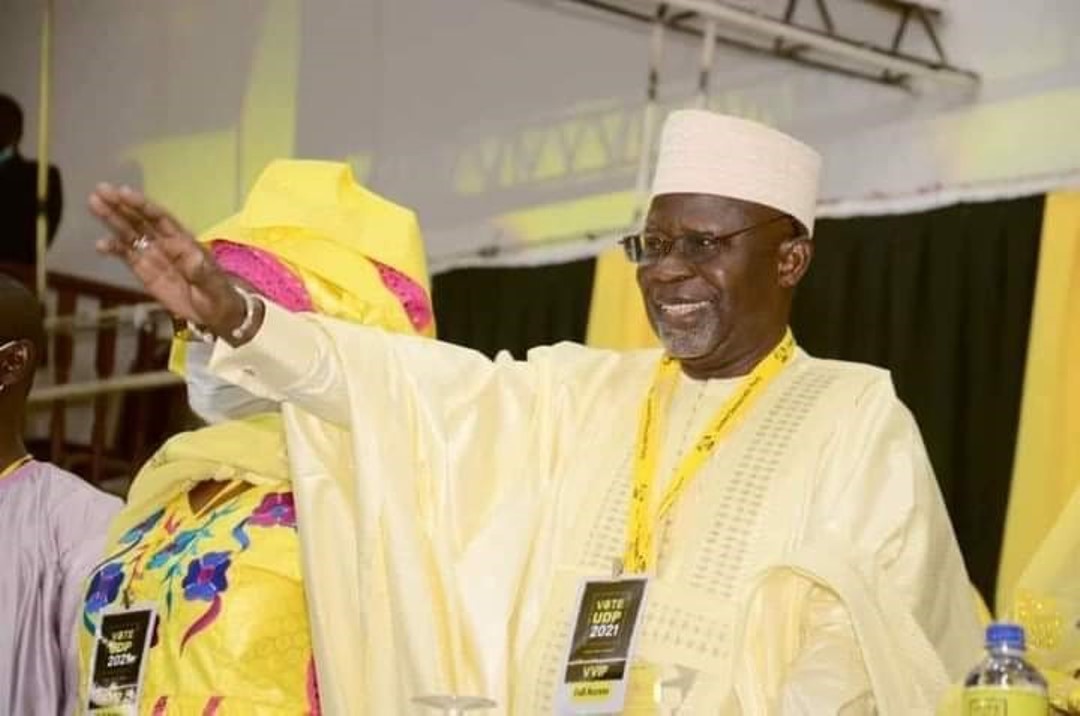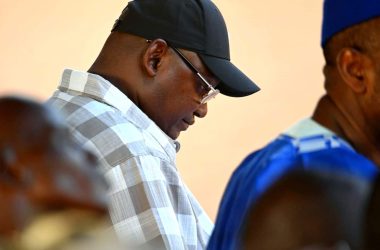 (JollofNews) – In December this year, thousands of Gambians will be voting in the country’s presidential elections, which the incumbent Yahya Jammeh will be contesting for a fifth term. Jammeh, a former officer of the Gambian army, came to power in military coup in July 1994 and is governing the country with an iron fist.
(JollofNews) – In December this year, thousands of Gambians will be voting in the country’s presidential elections, which the incumbent Yahya Jammeh will be contesting for a fifth term. Jammeh, a former officer of the Gambian army, came to power in military coup in July 1994 and is governing the country with an iron fist.
Many Gambians have over the past years and months expressed concern about the country’s political climate, which keeps getting dark and darker. And in this piece, I will be looking at whether the Gambian electoral system under the chairmanship of Alhajie Mustapha Carayol can be described as ‘free and fair’.
Many Gambians including President Jammeh are of the view that the country is a functioning multi-party democracy as every mature Gambians has the right to seek political office and to vote in elections as enshrined in Section 39 (1, 2 and 3) of the 1997 Constitution of the Gambia.
But while the Gambia does have periodic elections, it will be wrong to describe our electoral system as free and fair because the country is far from being a democracy. Gambian laws are drafted in such a way that they have transformed the country into a dictatorship and gives absolute powers to the president who stands to win the December polls with a wide margin due to a combination of factors.
First of all, President Jammeh under Section 42 (3) is responsible for appointing the chairman and four senior members of the electoral commission in consultation with the Judicial Service Commission and the Public Service Commission. However, over the past years, there is little evidence to suggest that the president has ever consulted the two commissions over the appointment of members of the Independent Electoral Commission.
There is a lack of transparency in the appointment of these key members of the commission and as a result, the political neutrality of these commission members to conduct free and fair elections in the Gambia is very questionable.
Furthermore, apart from having the power to make appointments, President Jammeh also has the power under Section 42 (6) to remove the chairman and members of the electoral commission. And since the return of the country to ‘civilian rule,’ President Jammeh in total disregard to the constitution has fired three chairmen of the electoral commission and many commission members without informing them the reasons for their removal neither were they given the right to defend themselves.
42 (6) to remove the chairman and members of the electoral commission. And since the return of the country to ‘civilian rule,’ President Jammeh in total disregard to the constitution has fired three chairmen of the electoral commission and many commission members without informing them the reasons for their removal neither were they given the right to defend themselves.
The chairman and members of the Gambia’s electoral body can be seen to be under the control of the country’s president. They lack job security and operate under a climate of fear and intimidation as the president serves as the chief judge who decides their fates.
This seriously contravenes Section 43 (3) of the Constitution which states that: “In the exercise of its functions under this Constitution or any other law, the Commission shall not be subject to the direction or control of any other person or authority.”
While the constitution gives every mature Gambian the right to seek political office, the regime has restricted this right by increasing the registration fee political parties pay to contest elections from D10,000 to D1 million .
The fee is non-refundable and with the Gambia being among the least developed and poorest countries in the world where a large percentage of the population lives on less than $2 a day, the fee will make it almost impossible for opposition parties to contest in elections
Furthermore, during presidential elections in the Gambia, President Jammeh uses the state machinery to facilitate his re-election in contravention of the electoral law. State radio and television is bias in their political coverage.
The director of the state media is appointed by the president. The director acts as the gatekeeper and decides the news content of the organisation..
Reporters covering opposition meetings are censored by their boss and can be sack for their reporting. For example, Dodou Sanneh a reporter with the state television was in 2006 arrested and detained by state security agents for days without charge before being sacked for his reporting of the opposition UDP presidential campaign.
The lack of equal and unlimited access to state radio and television prevent opposition parties from selling their policies and programmes to the electorates.
Also, under the country’s sedition laws, opposition candidates and their supporters can be arrested and prosecuted for criticising the president and his government. And while the President is free to say anything he wants against his critics and opponents, the sedition laws prevents opponents of the regime from exposing its ills to the electorates.
Although Gambians are empowered constitutionally to ‘vote for the political leader and party of their choice’, Gambian elections are conducted under a climate of intimidation and fear. Civil servants who are under the general norms expected to be neutral, openly campaign for President Jammeh and his party and can be sack for being politically neutral. State security officers including the police, NIA and army also openly support the president and often arbitrarily arrest, detain, torture and kill opposition supporters and opponents of the regime.
Recently, during his meet the people tour, President Jammeh threatened to withhold development projects and programmes to any Gambian community that vote against him in the coming election. And with the president swearing to make true his threat, poor and deprived local communities in the country will have no choice but to vote for him.
This seriously undermines the conduct of free and fair elections in the country. Mor, A.argues that: “Democracy cannot be felt or effectuated behind closed doors, nor be based on an authoritarian rule or repression in lieu of competitive political parties, informed vigilant opposition, the active influence of the masses over the rulers, and the independent right of the people to organise and criticise.”
To conclude, I am of the strong view that elections in the Gambia are never free and fair and the December polls are just a mere formality.
As Robert Dahl said “If we accept the desirability of political equality, then every citizen must have an equal and effective opportunity to vote, and all votes must be counted as equal. If equality in voting is to be implemented, then clearly elections must be free and fair. To be free means that citizens can go to the polls without fear of reprisal; and if they are to be fair, then all votes must be counted as equal.”
The polls will be nothing but a sham as President Jammeh himself had on many occasions told Gambians that he would always win elections even if they don’t vote for him. Jammeh is also recently quoted saying that he would only leave office when he lost interest in the progress and development of the country.












